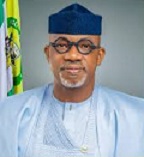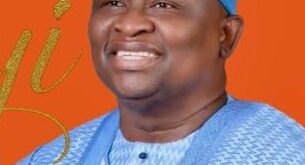Opinion:
BY KUNLE RASHEED
The recent surge in fuel prices in Nigeria has thrown many citizens into deep distress, pushing them to the edge of their endurance.
The new hike, which has seen petrol prices oscillating between N900 and N1100 per litre, is sending shockwaves across the economy, worsening the already dire living conditions of the people. The population, already under immense pressure, is now approaching a breaking point.
One of the most immediate and visible effects of the fuel price hike is on transportation costs, along with the small to medium-sized enterprises (SMEs) that rely on fuel to function. The cost of commuting has skyrocketed, impacting not only individuals but also businesses that need transportation to deliver goods and services. SMEs, which are the backbone of Nigeria’s economy, are feeling the sting of this increase more than most.
The reliance on fuel has made the situation more precarious for SMEs, already grappling with unreliable electricity supplies. These businesses are now facing higher operational costs, and with their thin profit margins, many are struggling to survive. This situation may lead to widespread business closures, which would further exacerbate the unemployment crisis in the country.
The ripple effect of the fuel price hike extends beyond businesses. The rise in fuel prices has triggered an increase in the cost of essential commodities, making it harder for families to afford basic needs. Many Nigerians, already living below the poverty line, are being pushed further into hardship. The rising cost of living forces households to make tough choices, cutting back on essentials like food, healthcare, and education. This will have long-term detrimental effects on the well-being of the nation.
There was a flicker of hope when President Bola Ahmed Tinubu took over, especially after the tumultuous era of his predecessor. But instead of relief, the nation received a harsh blow. What was anticipated to be a soothing balm has become a vicious acid eating away at the open wound of the nation.
Some government supporters urge patience, assuring that a solution is coming. But one wonders, what good is a solution if it comes too late? What use is hope to a broken spirit or a population pushed to its limits?
This is not a new phenomenon in Nigeria. From the era of President Shehu Shagari, the same old promises have been made: electricity, water, roads, and free education. But despite the pledges, the reality has always fallen short. Why is Africa, and particularly Nigeria, plagued by leaders who seem unable to bring about meaningful change? Is there something fundamentally wrong with the system or the people?
Looking back, it seems that even if great leaders like Obafemi Awolowo or Moshood Abiola had taken the helm, it might have been another chapter in Nigeria’s tragic story. History has shown that leadership alone is not the answer to the country’s woes.
This fuel price increase is a harsh and insensitive blow to a population already struggling to survive. It is squeezing the economic and social fabric of the country. If the government does not act swiftly and compassionately, the growing frustration among the populace could ignite a powder keg waiting to explode.
It is still aabo ooro.
This is Kunle Rasheed, reporting live from the depths of his soul.
@followers
@highlight
 Startrend International Magazine For Your Latest News And Entertainment Gists
Startrend International Magazine For Your Latest News And Entertainment Gists





